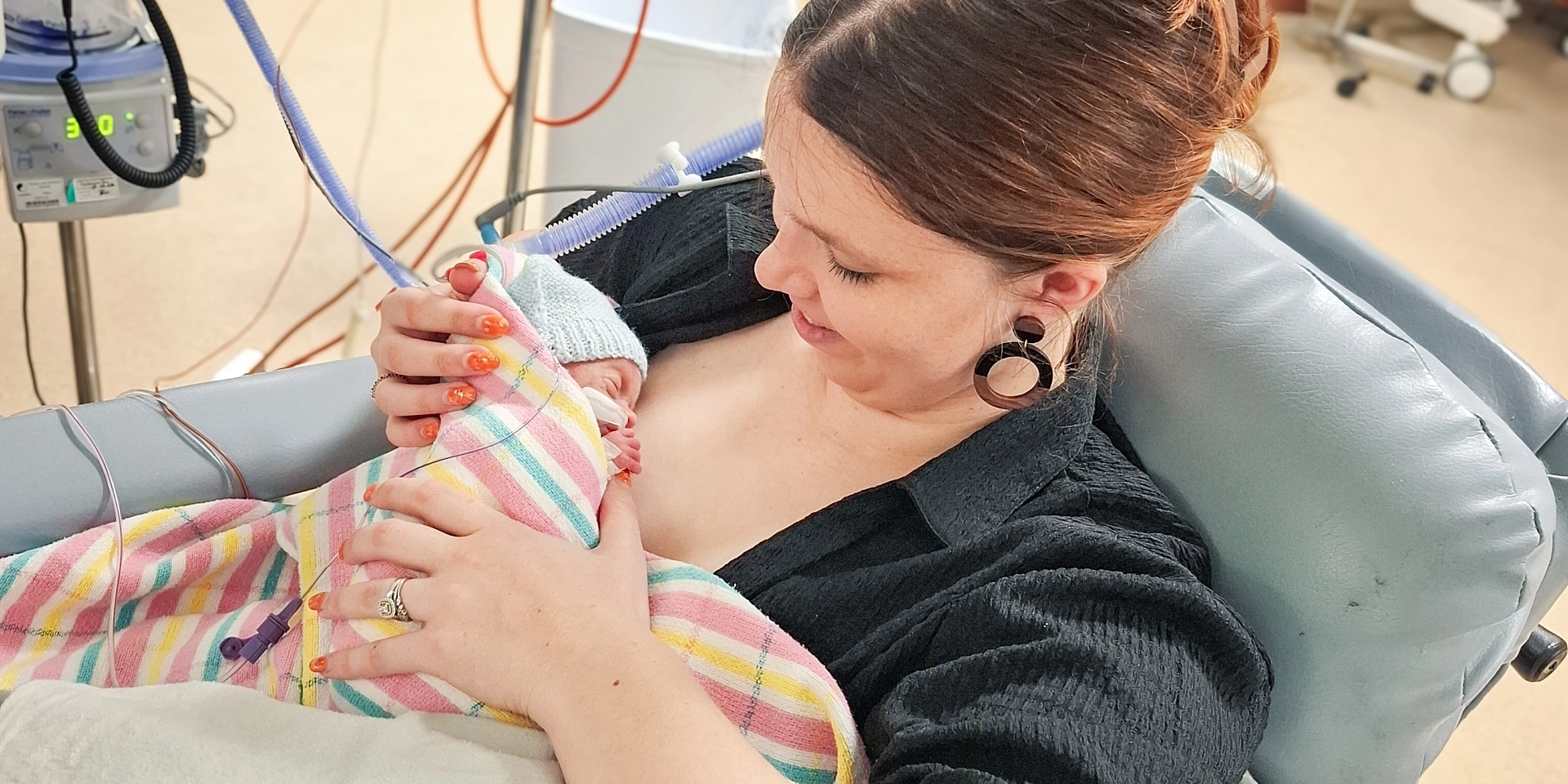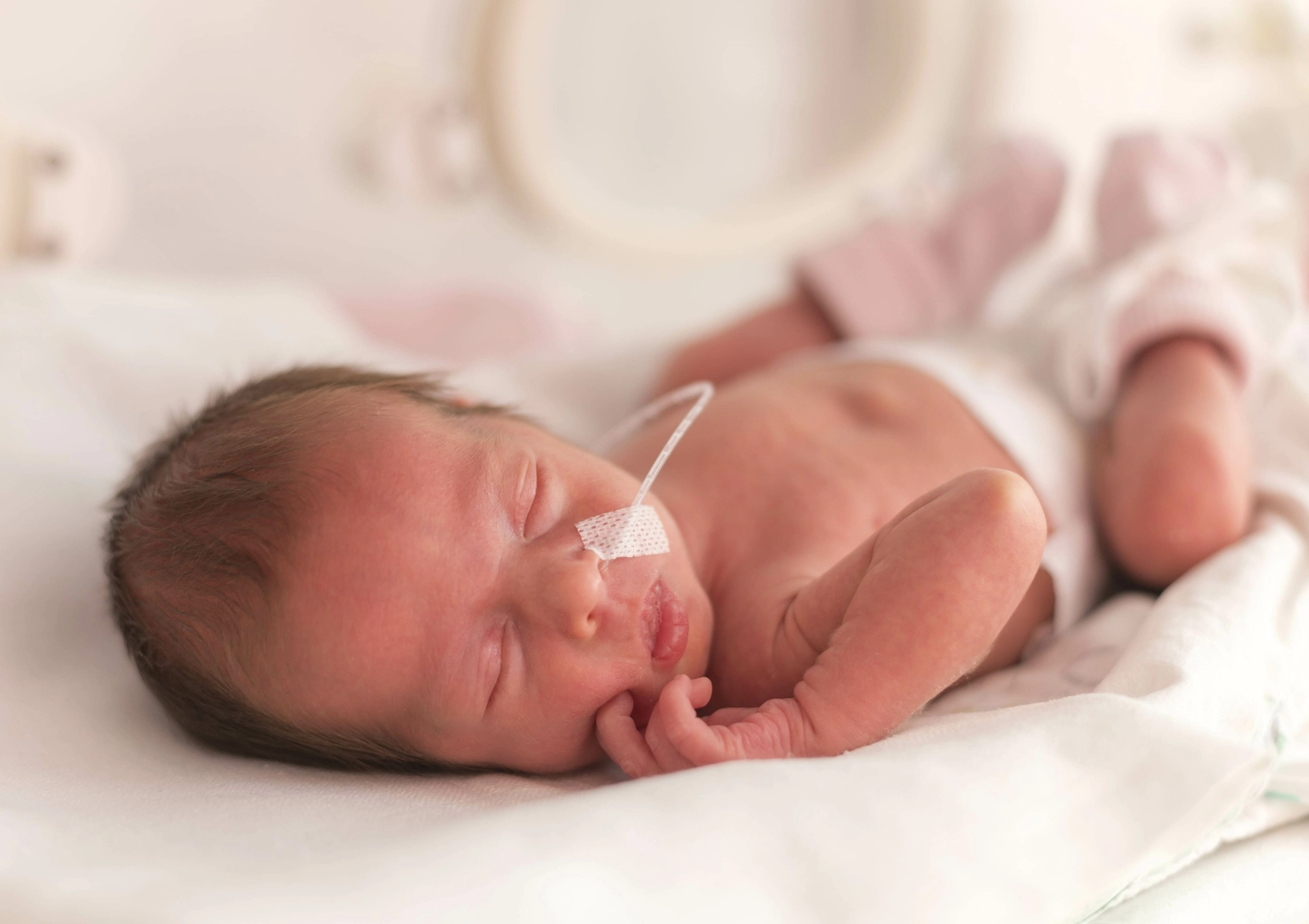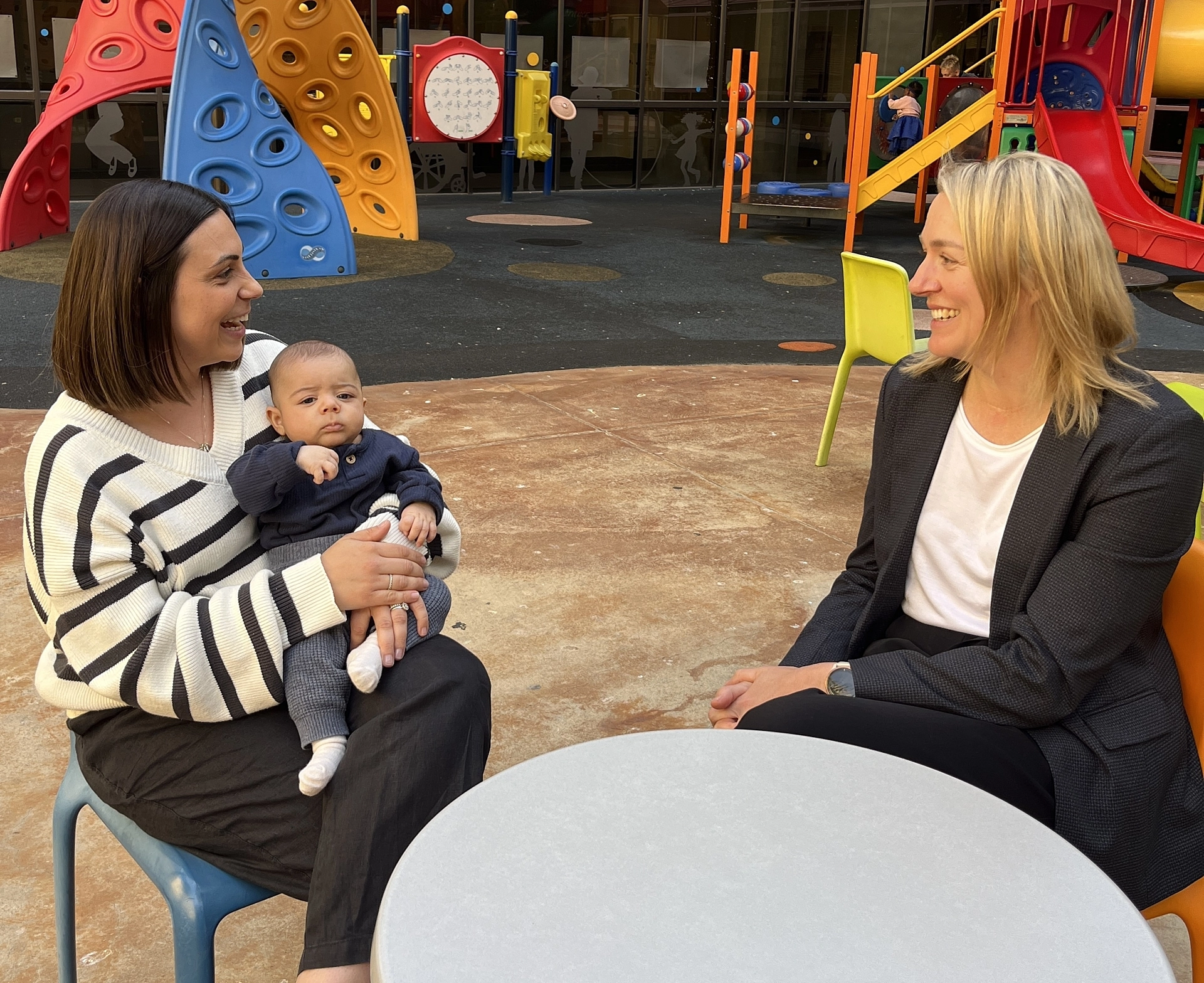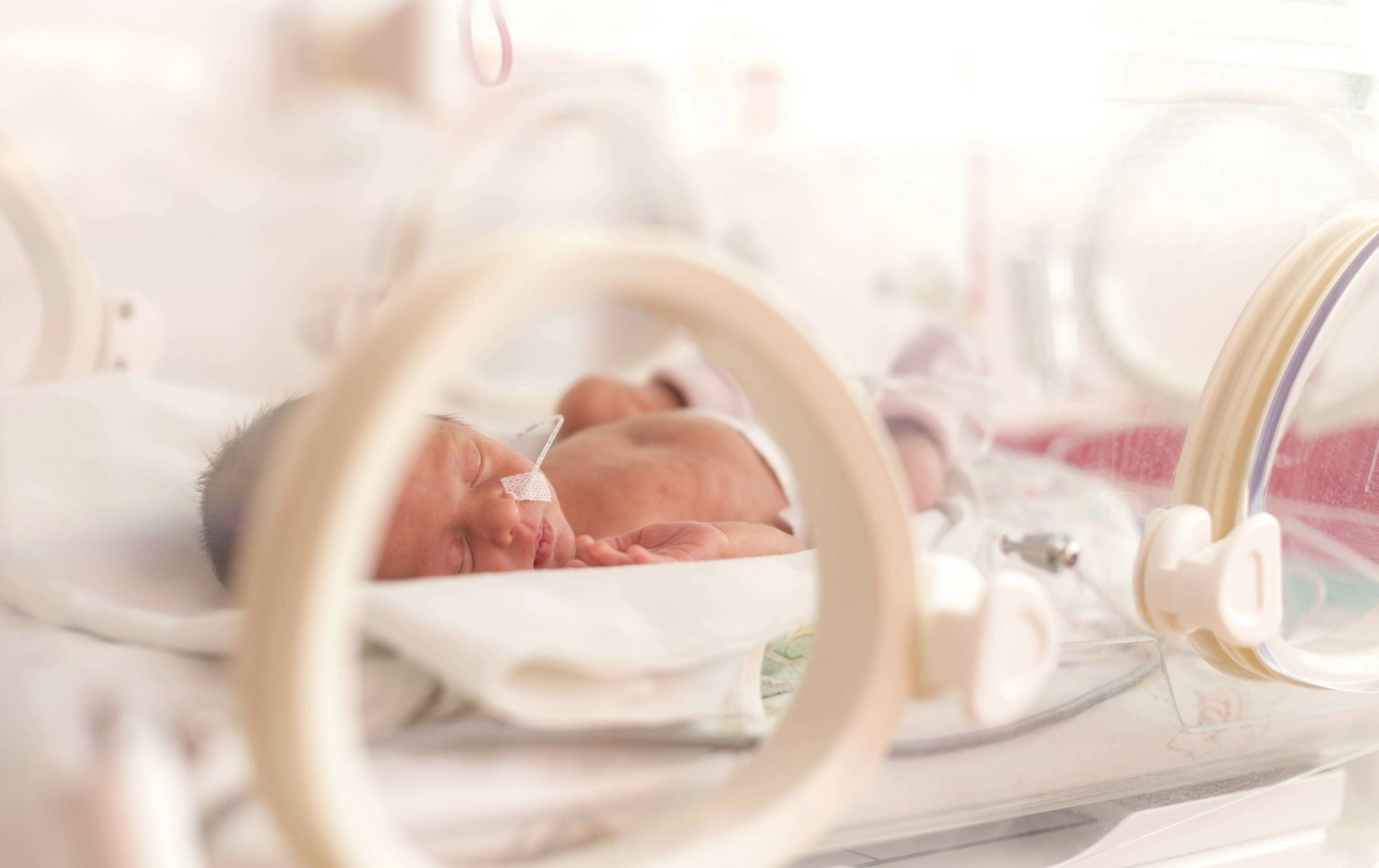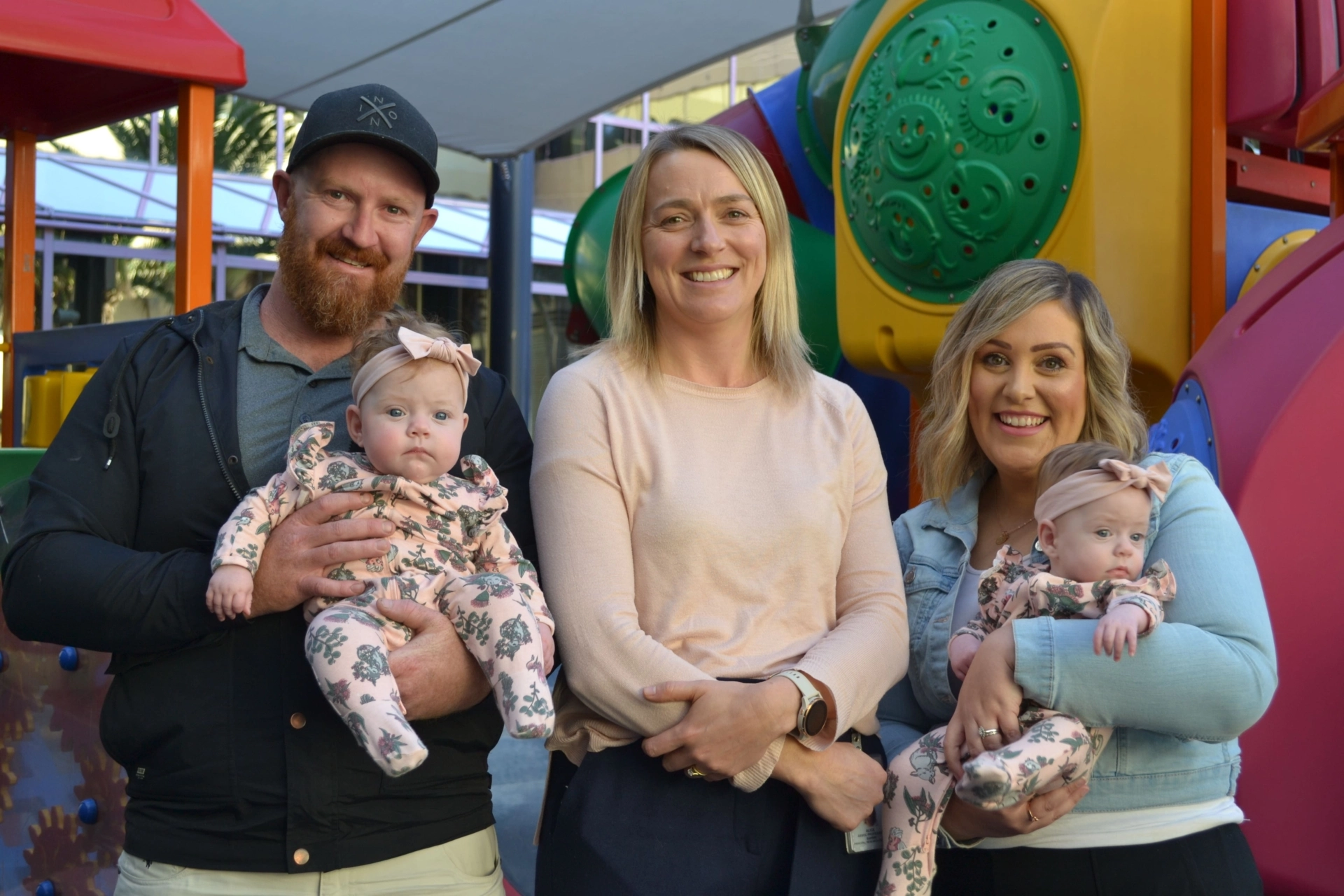A national trial currently underway is aiming to answer one of the biggest questions in newborn nutrition, is donor breast milk better than formula for babies born moderate to late preterm?
The GIFT Trial, led by researchers from SAHMRI and the University of Adelaide, is following more than 2,000 babies born between 32 and 36 weeks through feeding transitions, hospital stays and early development, to determine if donor milk improves health and feeding when a mother’s own milk is unavailable.
Many mothers of preterm infants struggle to establish breastfeeding early on, especially when their babies are born suddenly or unwell. But when South Australian mum Meaghan Price’s son Wyatt was born at just 31 weeks, she surprisingly had the opposite experience…
After years of fertility challenges and a high-risk pregnancy, Wyatt’s early arrival was terrifying. But amid the Neonatal Intensive Care Unit (NICU) stress, something unexpected happened, Meaghan’s body produced an oversupply of breast milk.
“I was pumping every few hours, day and night,” Meaghan said.
“Soon we ran out of space at home and in the NICU freezer. We even had to store milk at our relatives’ houses.”
Since then, Meaghan’s donated more than 150 litres of breast milk, enough to supply 40 neonatal intensive care units for a week, helping hundreds of premature babies and becoming Australia’s biggest milk donor in the process.
“It’s one of the most rewarding things I’ve done and a beautiful way to turn something challenging into something deeply meaningful,” she said.
In typical cases when a mother’s own milk is in short supply, hospitals supplement with either formula or, for very preterm babies, pasteurised donor milk provided by Australian Red Cross Lifeblood.
Although donor milk has proven to reduce serious gut complications in very preterm infants, GIFT trial lead investigator Professor Alice Rumbold says the benefits for moderate to late preterm babies, who account for around 85 percent of all preterm births, are yet to be established.
“Moderate-late preterm babies often appear well, but they are at increased risk of developmental challenges, behavioural issues and long-term health concerns compared to full-term babies,” Prof Rumbold said.
The GIFT Trial builds on a recent pilot study involving 201 moderate to late preterm babies. The sample study found no short-term feeding advantage of donor milk over formula, but researchers expect the much larger-scale trial will reveal the answers.
“We don’t yet have enough data to say definitively what the impact of donor milk is in these babies,” Prof Rumbold said.
“This trial is an incredible opportunity to better understand what’s best for the thousands of moderate-late preterm babies born in Australia each year.”
Supplying all the donor milk for the GIFT Trial, Australian Red Cross Lifeblood is currently calling for more eligible milk donors to help meet growing demand.
Australian Red Cross Lifeblood we’ll need 600 new milk donors in the coming year to meet demand for babies born very prematurely in Neonatal Intensive Care Units across the country.
